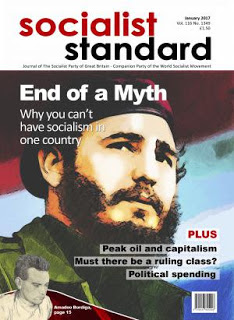One of my less endearing characteristics, according to some friends, is my condemnation of anything I find politically or culturally objectionable as ‘bourgeois’. It is a polemical convention that socialists sometimes use as a description of values and concepts we find to be provocatively antithetical. For non-socialists this kind of political shorthand can be mystifying and downright annoying. So what exactly do we mean when we use this most cutting and dismissive of critiques? Is there a coherent set of values and principles that underlies the constant drone of contemporary cultural commentary which represents a conscious attempt to control our response to events and ideas and make them conform to political norms?
Before continuing our analysis we must define what we mean by ‘bourgeois’. Historically it defined the capitalists who were to challenge the political hegemony of the king and aristocracy. After having been successful in their quest for power they now represent a ruling class. Today’s ‘middle class’ can be defined as members of the working class who are relatively a little more affluent than their fellows and who, more importantly, aspire to the position and values of the ruling class. In many ways it is this section of our society that has attempted a political defence of their masters in terms of a value system (ideology).
Throughout this article when referring to this ideology it is not a reference to any work done specifically by members of the bourgeoisie themselves, but rather to the efforts of those who seek to proclaim and defend their legitimacy. Bourgeois economics for instance, is rarely, if ever, the product of the class that bears its name but rather that of those who are blessed and sponsored by them (including mainstream media etc).
So what is the essence of this ideology? Perhaps there are three elements that are always present: (a) the deification of the market, (b) the need for authoritarian social structures and (c) the contempt for real ‘work’. Other bourgeois ideologists replace these three categories with: (a) rational economic exchange, (b) democratic security and (c) success as a celebration of ‘hard work’. This obvious dialectically opposed description of the same ideology is an illustration of what Marx called the ‘internal contradictions’ within the attempt to rationalise the ruling class’s power. As to which description is more relevant or which better represents ‘reality’ let us now revisit our categories in turn.
Adam Smith’s celebration of the ‘invisible hand’ in his work The Wealth of Nations was an important step towards the deification of the market system. It is both a supernatural metaphor for the economic mechanism of capitalism together with a quasi-religious admiration for it. In a way Marx also shared this admiration but only insofar as it made socialism possible. Marx systematically demystified capitalist economics and although he represented the climax of Smith’s classical tradition, subsequent economists have sought to distance themselves from his work. Why? Because he revealed it for what it was, and still is – the exploitation of the majority by a parasitic tiny minority.
Most contemporary economists work within the narrow paradigms of capitalist ideology that refute the possibility of any alternative economic relationship and, through ignorance, proclaim it as the ‘true faith’. As a result of their attempt to ‘rationalise the irrational’ most people are totally mystified and believe that these high priests of bourgeois ideology must have access to some profound secret that explains it all – when all they have, in reality, is their faith.
Given the stark contradiction between the social production of everything and the individual ownership of what’s produced it is not surprising that this tiny minority feel the need for the threat of force to be available to defend their wealth. This is the only reason for the existence of the state and its enforcers: the armed services and police. Bourgeois ideology depends on a phantom of ‘human nature’ as greedy, envious and violent in order to rationalise this ever-present threat. Enshrined in their ‘laws’ are the rights to defend their stolen wealth with violence and imprisonment. This authoritarian ethos becomes even more dangerous when, as periodically occurs, capitalism crashes and the subsequent chaos encourages people to blame immigrants and foreigners for their economic suffering, which in turn, enables the authoritarian character of the state to flourish.
Bourgeois ideology has no interest in whether ‘work’ is fulfilling, meaningful or even destructive just so long as it’s profitable. If, as socialists believe, the very essence of our humanity is our creative work and the benefits it brings to the community, then capitalism has rendered us ‘inhuman’. An employer once told me, when asked what motivated him, that: ‘I want to lie around on a desert island and never work again’. Such a sad superficial understanding of what brings happiness to humanity together with the obvious contempt for any kind of ‘work’ is an indictment of their ideological perversion of a basic human need.
This then, is the ideology created by the intelligentsia of capitalism. It is debatable how appropriate or informative the use of the term ‘bourgeois’ is for all of the intellectual and productive endeavours within capitalism, but given the above definition it seems always present to a greater or lesser degree. We have to bear in mind that socialism will be born out of capitalism and so some of its activities are potentially subversive and progressive. Although there is much talk of ‘bourgeois science’ it is hard to recognize an ideological element within mathematics or geometry; that particular debate has yet to be resolved. Of course the uses to which science is put in this benighted culture of ours are readily explained by bourgeois ideology but perhaps the ‘scientific method’ itself, however problematic, will aid and not hinder the cause of revolution.
Wez

No comments:
Post a Comment